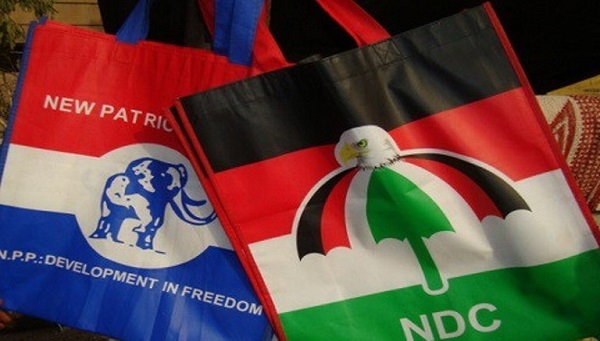In Ghana’s democratic evolution, one office has long remained misunderstood and underutilized: the Vice Presidency.
Framed by Article 60 of the 1992 Constitution, the role is constitutionally positioned as the successor to the presidency in the event of death, resignation, or removal of the president.
Yet, for decades, the office has been treated more like a constitutional spare tyre—essential, but only useful in moments of emergency.
The design of the 1992 Constitution renders the Vice President largely invisible unless specifically delegated duties by the President. He or she is accountable only to the President, not Parliament or the judiciary, unless acting as President.
This narrow scope of responsibility has often relegated vice presidents to the background, leaving them with limited national visibility and minimal executive influence.
Historically, it became politically conventional—especially within the New Patriotic Party (NPP)—that vice presidents exited active politics with their outgoing presidents, rarely showing interest or being considered for the presidency.
This tradition suggested a silent agreement: that a vice president was not necessarily presidential material.But that thinking is rapidly changing.
The notion that one who is unfit to be president can still be appointed vice president undermines the very principle of constitutional succession.
If the vice president is the automatic replacement for the president under Article 60(6), then that individual must be competent, prepared, and capable of assuming leadership at any time.
This reality came into sharp focus in 2012, when Vice President John Dramani Mahama ascended to the presidency following the unexpected death of President John Evans Atta Mills.
Mahama’s calm assumption of power and eventual victory in the subsequent election demonstrated that the vice presidency could serve as a viable launchpad to the highest office.
He not only completed Mills’ term but won the 2012 elections in his own right, navigating a contentious electoral petition along the way. His transition transformed the public perception of the vice presidency and established a new precedent for succession
On the other side of the political divide, Dr. Mahamudu Bawumia emerged as a new archetype of a modern, active vice president.
An economist and former Deputy Governor of the Bank of Ghana, Bawumia became a key figure in the NPP’s digital and economic transformation agenda. His visibility and involvement in major policy decisions redefined the traditional expectations of a vice president.
After serving as a running mate in 2008 and 2012 and being sworn in as Vice President in 2017, he rose to become the party’s 2024 presidential candidate—marking the first time a sitting vice president in Ghana became a party’s flagbearer while still in office.
The 2024 general elections presented a historic contest: two former vice presidents—John Mahama of the NDC and Dr. Bawumia of the NPP—facing each other in a presidential election. Though Mahama won, the significance of the moment was undeniable.
The vice presidency had now become an established path to the presidency. What was once seen as a backup role had evolved into a frontline political platform.
This shift also brings into question the succession strategies of Ghana’s two major political parties. The NPP appears to have established a clear leadership pipeline.
From running mate to vice president to presidential candidate, Bawumia’s political journey exemplifies strategic planning, party grooming, and consistency.
He has become the most visible and longest-serving vice president in the party’s history, amassing over 16 years of national political experience.In contrast, the NDC under Mahama’s leadership has struggled to build a succession plan.
Following his 2016 electoral defeat and the passing of his former vice president, Paa Kwesi Amissah-Arthur, the party has yet to position a vice-presidential candidate as a potential future flagbearer.
His current running mate, Prof. Jane Naana Opoku-Agyemang, made history as Ghana’s first female vice president-elect, but she has yet to be groomed as a future presidential candidate in the public imagination.
This disparity in succession planning raises critical concerns about long-term political stability and institutional continuity.
If Article 60 is to be fully respected, then the office of the vice president must not be a consolation prize or a tool for regional balance. Rather, it must be the incubator for future presidents.
The very design of the Constitution anticipates that the vice president is next in line, and as such, should be prepared and fit to lead at any moment.
The era of vice presidents who have no ambition, preparation, or mandate to become presidents must be left behind.It is now clear that political tradition, not legal constraint, has shaped the vice presidency into what it is today.
Mahama and Bawumia have proven that, with trust, visibility, and responsibility, the vice president can become more than a ceremonial figure—they can become a commanding force in national leadership. Bawumia’s rise is especially noteworthy.
As a Northern Muslim leading a party often criticized for ethnic imbalance, his candidacy shattered long-held perceptions and opened the door to new possibilities in Ghana’s political landscape.
Though he did not win the 2024 election, his emergence has left an indelible mark on the institution of the vice presidency.The lessons are profound. Political parties must rethink how they appoint and groom vice presidents.
The position must be filled by those capable of leading—not merely those willing to remain in the shadows. The Constitution’s succession plan is not symbolic; it is practical.
If a vice president must be ready to take over the country at a moment’s notice, then political parties and presidents must ensure that their choice of vice is not just politically expedient, but constitutionally sound.
In the end, the success of Ghana’s democracy will depend in part on the strength of its leadership transitions.
And the vice presidency—once relegated to the trunk of national relevance—is now firmly in the driver’s seat of Ghana’s future.
The era of vice presidents who cannot become presidents is over. A new political doctrine is emerging: if you’re fit to be vice president, you must be fit to be president.


